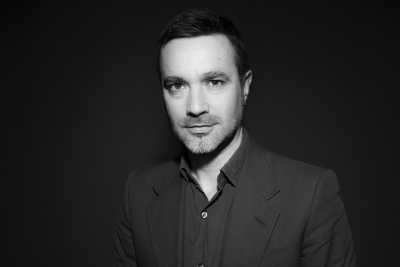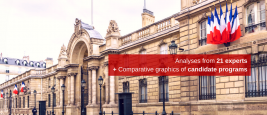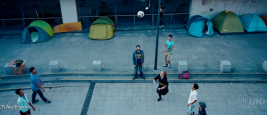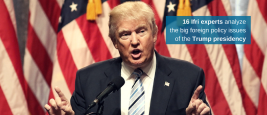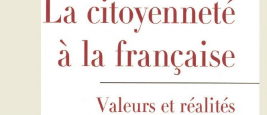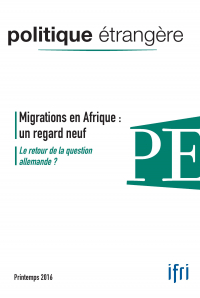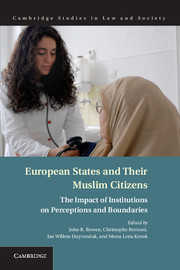
Christophe BERTOSSI
Former Senior Research Fellow and Director of Ifri's Center for Migration and Citizenship
Research Interests:
- Populism, nativism and nationalism
- Diversity, labour relations, and trade unions
- Islam and secularism in public institutions
- Theories of international migration
- Global governance of migration
Christophe Bertossi was the Director of the French Institute of International Relations - Ifri's Center for Migration and Citizenship from 20211 to 2021. He holds a PhD in political science (Institut d'Etudes Politiques d'Aix-en-Provence, 2000) and is habilitated to conduct research in political science (Institut d'Etudes Politiques de Paris, 2013).
Christophe Bertossi was a Marie Curie research fellow at the Centre for Research in Ethnic Relations at the University of Warwick in Great Britain between 2001 and 2003 and a visiting research fellow at New York University (2009), the Institute for Advanced Study-Collegium de Lyon (2010), and the Max Planck Institute for the Study of Cultural and Religious Diversity in Göttingen (2015). He was also a "Rector's Fellow" at the Institute for Advanced Study in the Netherlands (NIAS) (2020). His publications include: La citoyenneté à la française: valeurs et réalités (Editions du CNRS, 2016); European States and their Muslim Citizens. The Impact of Institutions on Perceptions and Boundaries (Cambridge University Press, 2013, with John Bowen, Jan Willem Duyvendak and Mona Lena Krook); As Cruzadas da Integraçao na Europa (Principia, 2012); Les couleurs du drapeau: les militaires français issus de l'immigration (Robert Laffont, 2007, with C. Wihtol de Wenden), and European Anti-Discrimination and the Politics of Citizenship: France and Britain (Palgrave MacMillan, 2007).
While migration from Africa is the priority of European policies for the control of the European Union’s external borders, African migration dynamics are above all regional. Sub-Saharan migration is poorly connected to transcontinental flows: more than 70% remain in Africa.
On December 9, 2020 will be celebrated the 115th anniversary of the 1905 law on French secularism (laïcité). On the very same day, a new law project will be presented by the French government, with the objective of further strengthening the “republican values” in order...
France’s current presidential campaign has created an unprecedented situation fuelled by revelations and a total absence of restraint, but it has not truly taken account of the disruptions of the last year: Brexit, the attempted coup in Turkey, the election of Donald Trump, the recapturing of...
Contrary to other immigration societies such as the United States, Canada or Australia, migrations is not a core element of European narratives on shared identity. Each country maintains a very particular understanding of his migratory past and on the extent to which it should become part of...
What will become of US foreign policy under Donald Trump? A selection of Ifri researchers has come together to offer their thoughts on this question. Our experts cover an array of topics through 14 contributions, ranging from the future Sino-American relations, through US engagement in the...
Citizenship is a major issue in public debates when it comes to immigration in France. Passionate talks illustrate the current disagreements on the meaning of value such as “laïcité”, “universalism”, “equality”, “community” and on the way these should apply in social and political...
Movements of African people, being within their countries, on the continent or heading Europe, have numerous and ancient causes. The term “migration” covers a plurality of situations with many internal as well as international implications. Therefore, reasons to migrate deserve a careful...
Just a day after the murderous attacks that killed 129 people and wounded about 350 more in Paris and St Denis on November 13th 2015, the word spread that a Syrian passport had been found near the body of one of the Stade de France’s attacker.
This book responds to the often loud debates about the place of Muslims in Western Europe by proposing an analysis based in institutions, including schools, courts, hospitals, the military, electoral politics, the labor market, and civic education courses. The...
More often than not, the notion of a national model of immigrant integration is held to be self-evident in the comparative scholarship. This type of reasoning, however, does not go without serious costs for the social sciences. Among these costs are the danger of reifying the categories used...



